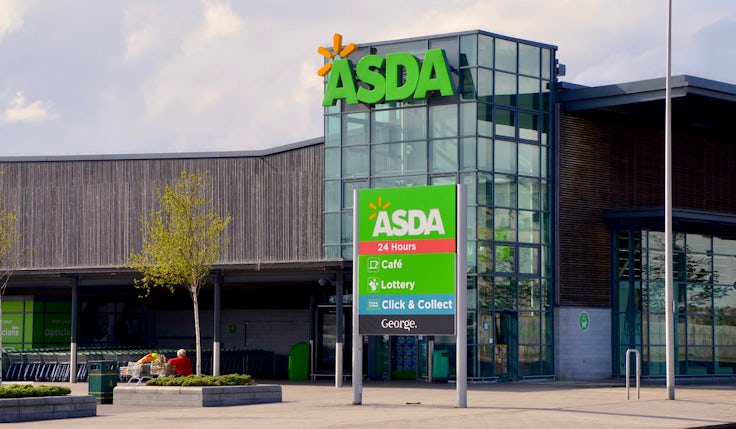Marketing budget growth stalls for first time in over three years
The latest quarterly IPA Bellwether report demonstrates a stall in marketing budgets as pessimism grows around the upcoming UK budget.

UK marketing budgets have failed to grow for the first time in 14 quarters as marketers “press pause” on spending ahead of the autumn budget.
The latest quarterly IPA Bellwether report reveals the number of panellists who revised their marketing budget upwards (21.6%) matched those who implemented cuts, resulting in a net balance of 0.0%.
This demonstrates a significant shift in behaviour from the growth observed over the previous 13 quarters, which had averaged a net balance of 8.8%. To compare, in Q2, 15.9% of brands revised their marketing budgets upwards.
However, IPA director general, Paul Bainsfair, believes the drop is most likely a “temporary dip” rather than the start of a long-term downward trend, and that those brands which continue to invest in advertising will reap “significant market share” rewards in the future.
“Negative hype surrounding the impending budget has no doubt created choppy waters for UK companies and their marketers to navigate,” he says.
“By raising their advertising voice when others go quiet, particularly in longer-term brand building media, brands can achieve greater market stand out and, in doing so, strengthen their value and embolden their price elasticity.”
Video on the rise
Despite the apprehensive approach to marketing budgets, the category breakdown revealed several strong performing media channels in the third quarter.
Main media advertising, which includes video, audio, published brands and out-of-home (OOH), experienced a second consecutive quarter of budget increases, with the net balance climbing from 3.5% to 4.3%.
This growth was driven by big ticket video campaigns, which saw the net balance of firms registering upward revisions to 11.7%, up from 7.8%, the highest since the end of 2022.‘An economic problem’: Brands urged to treat social mobility as a business imperative
However, this increase was offset by a decline in the remaining segments, with OOH experiencing the most significant downward revision, falling to –15.7%, marking the biggest decline in over two years. Audio dropped to –10% from 15.5%, while published brands increased to –4.4% from –6.3%.
In a move that could signal an increased focus on brand over performance, other online marketing budgets saw a steep decline from 15.3% in Q2 to –1.4%, marking a first negative net balance in four years.
Public relations saw a surge in investment, with the net balance hitting a record high of 11.0%, up from 2.6% last quarter. Notably, this latest boost in PR budgets far exceeded earlier forecasts, with spending jumping well above the predicted net balance of 6.3%.

Meanwhile, events ranked second, with a net balance of 9.9% of panellists revising budgets upwards. However, this is a drop from the 17.2% it recorded last quarter, and a further decline from the all-time high seen in Q1. The slowdown in events budget growth in Q3 marked an underperformance of this segment relative to the 2024/25 forecast, which showed a net balance of 18.7% anticipating higher spending.
In other areas, direct marking had its strongest revision in three quarters, with a net balance of 9.7%, up from 8.9% in Q2. Sales promotions budgets continued to grow, registering a fourth consecutive quarterly increase. However, the net balance fell to 3.2%, from 6.9% in the previous quarter, as UK inflationary pressures come back under control.
Finally, budget allocations were reduced for both market research, which saw its net balance drop to -1.5% from 3.2%, and other forms of paid marketing (-9.7% from -7.6%).

Company prospects turn negative
Elsewhere, Bellwether companies registered a pessimistic outlook toward company-specific prospects compared to the previous quarter, with attitudes turning negative after nearly two years of optimism.
While a net balance of -2.2% may indicate only slight pessimism regarding the company’s financial outlooks, this marked the first time in seven quarters the net balance posted below zero. A stark contrast to the three-year high of 13.6% in Q2.
Nearly a quarter (23.9%) of panellists expressed downbeat sentiment in the three months leading to September, a notch above the 21.7% who were positive. Additionally, survey respondents were more negative about the outlook for their industry overall. The net balance of -16.2% in Q3 (previously -4.1%) was the lowest recorded since the closing quarter of 2022.‘Don’t be afraid to pivot’: One CMO on why change isn’t a bad thing
However, in line with a stronger economic outlook, Bellwether has lifted its ad spend forecast to 0.6% in real terms for 2024 versus a flat estimate previously (0.0%)
Growth in 2025 is expected to be similar, with S&P Global Market Intelligence predicting a 1.3% annual GDP expansion, slightly above the 1.2% growth forecast in the previous report. Positively, advertising spend is anticipated to pick up considerably next year, growing 1.3%.






